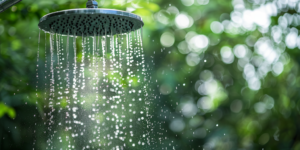A generator is an essential piece of equipment to have on hand during a power outage, but it’s necessary to make sure it’s in proper working condition before you need it.
1- Check the Oil Levels
Make sure to check the oil levels and fill the generator with fresh, clean oil. If you’re not sure how much oil your specific model needs, refer to your owner’s manual or ask a Licensed Electrician for advice. By checking the oil levels and filling them as needed, you can help prevent generator damage.
2- Ensure all Connections are Tight
Ensure all connections are tight and check the wires for any signs of damage. Loose connections can cause the generator to overheat, so it’s essential to ensure they’re all in good condition. You should also check your generator’s plug to make sure it doesn’t have any issues.
3- Inspect the Spark Plug for Damage
We all know the frustration of finding something broken before we need it, but imagine how much more frustrating it would be if you had to find out your generator wasn’t working after a storm. To avoid that scenario, check the spark plug to make sure there are no signs of damage or wear and tear.
4- Service Regularly
Service your generator regularly. If you don’t have a lot of experience with generators, you should get it serviced by a Licensed Electrician so they can take care of the problem before it gets worse or causes damage. Regular servicing includes changing the oil and filter, inspecting all parts, and running tests to ensure everything is working correctly.
5- Store in a Dry, Well-ventilated Area
If you live in a hurricane-prone area, make sure to store your generator someplace where it’s protected from the elements. In addition to protecting it from rain and water damage, storing your generator away from outside elements will also protect it from rusting and other types of damage. Sunlight can also damage your generator, so make sure to keep it in a dry and well-ventilated area. You can build a generator shed or shelter to protect it.
6- Check for Loose or Damaged Wiring
Ensure all wiring is connected correctly and in good condition. Damaged wiring can cause the generator to overheat, so it’s essential to check for any issues before you need it. An overheating generator can also cause severe damage to your generator, so make sure everything is working correctly before you use it.
7- Replace Parts Immediately they Break Down
If any of the parts on your generator break down, replace them immediately. By waiting to replace broken pieces, you put yourself at risk and put the entire generator at risk. Faulty parts can cause the generator to overheat or malfunction, so it’s essential to take care of any issues as soon as they arise. If you have any questions about the parts of your generator or how important it is to replace them on time, ask a Licensed Electrician for more information.
With these seven tips for ensuring your generator is in proper working condition, you can make sure that you and your family remain safe whether there’s an emergency or not. By following these rules, you can protect yourself and the generator you rely on during periods of bad weather.


